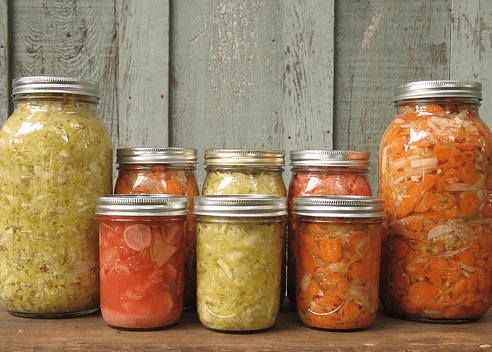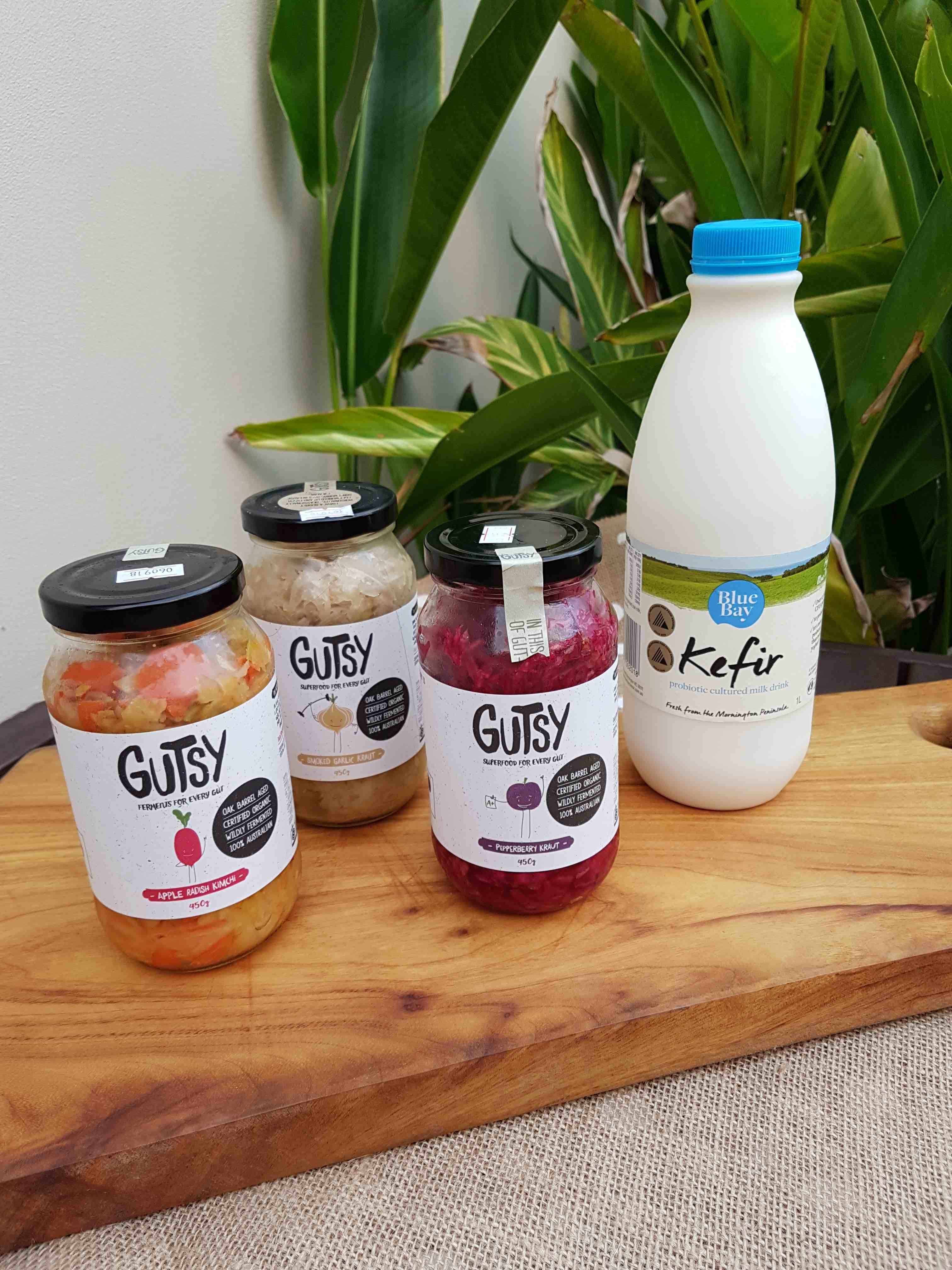 For centuries around the world, fermenting foods has been a way to preserve food and lengthen its shelf life, whilst producing a unique flavour. Fermentation relies on the natural action of micro-organisms (yeast and bacteria) to convert carbohydrate in food into short chain fatty acids and other by-products. It is the ingestion of these fermented foods in the gut that produces its health benefits.
For centuries around the world, fermenting foods has been a way to preserve food and lengthen its shelf life, whilst producing a unique flavour. Fermentation relies on the natural action of micro-organisms (yeast and bacteria) to convert carbohydrate in food into short chain fatty acids and other by-products. It is the ingestion of these fermented foods in the gut that produces its health benefits.
It’s only recently that these health benefits are being investigated in the research world and so far, the results are impressive. Fermented foods can improve our gut microbiome and optimise gut health, help with blood glucose and cholesterol control, enhance our immunity, reduce inflammation, and decrease the frequency and duration of gut or respiratory infections.
The natural acids within the fermented foods will lower the pH enough to prevent nasty bugs from growing within that food. Commercial fermented products on the market are so variable in terms of the number of their beneficial Colony Forming Units (CFU) present. You can purchase fermented foods from health food shops, markets or you can make your own – but in the latter case, it is best to attend a fermentation workshop first. When fermenting at home, it is very important to ensure cleanliness and hygiene, as well as getting the timings of the process correct.
Try including some fermented foods (start with 1 or 2) to improve your overall health and well-being. The combination of probiotics (“live” beneficial bacteria) and the by-products of the fermentation of these foods in our gut seems to cause the beneficial effect. Whilst there is no regular testing done of the quantity of the micro-organisms present on fermented foods, it does appear that the inclusion of fermented foods (from reputable wholesalers or MYO) does have a positive and enriching effect on your gut bacteria. Eating some fermented foods in combination with plentiful and nourishing foods in your day can add benefit your health.
- Kombucha is a fermented tea drink made with the presence of a SCOBY (symbiotic culture of bacteria and yeast) with a combination of green or black tea, sugar and other flavourings like turmeric, ginger or raspberry. The SCOBY ferments the tea and sugar to make a sour tasting drink with the beneficial acids.
- Kefir is a fermented drink from milk (cow, sheep or goat) which is slightly thicker than milk. It is known for its antimicrobial properties and improving gut health.
- Yoghurt with live cultures present will commonly contain lactobacillus, which is valuable to the gut microbiome. Choose unsweetened Greek yoghurts with live cultures.
- Sauerkraut is fermented cabbage originating from Germany using lactic acid, cabbage and brine. Avoid buying bottled or canned sauerkraut in supermarkets as the pasteurization and heating of these products will destroy the beneficial organisms. Sauerkraut is best bought fresh, or bottled from a reputable distributor, or made at home.
- Kimchi is a spicier version of fermented cabbage and often served with chilli, fish sauce, garlic and pepper.
- Natto is a Japanese paste of fermented soybeans, used as a base for miso soup or served with rice.
Where to get your fermented foods?
Gutsy Ferments is Brisbane based, has local distributors and sells from the markets. They also run workshops at Wacol
The Fermentary for products and their cookbook Ferment for Health
Great fermentation workshops run by @sunshinecoastgutclinic


